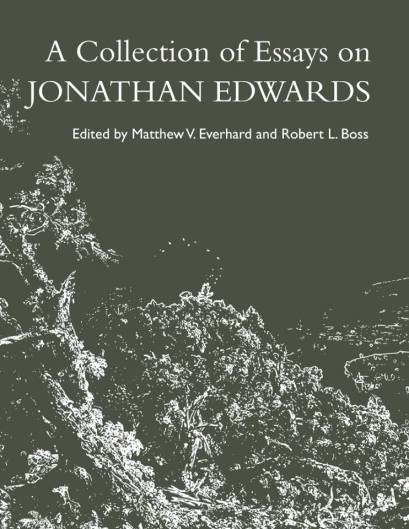In celebration of our new publication, “A Collection of Essays on Jonathan Edwards” (JESociety Press, 2017) EdwardsStudies.com will be doing some short profile interviews with our article contributors. Today, we chat with Obbie Tyler Todd.
Greetings Obbie, tell us about yourself!
I serve as Associate Pastor of Students at Zoar Baptist Church in Baton Rouge, Louisiana. Previously I pastored a small rural church outside of Bardstown, Kentucky for over a year. As I was finishing up my Th.M. at Southern Seminary, Kelly and I felt the Lord calling us to Cajun country. Not long ago I also began my PhD work at New Orleans Baptist Theological Seminary. Currently I’m studying 18th century South Carolina Baptist Richard Furman and his influences (e.g. Jonathan Edwards). Tom Nettles at Southern greatly aided me in exploring the Edwardsean influence on Furman and other 18th -19th century Baptists. I had Dr. Nettles for both Th.M. and PhD-level courses in Edwards studies, and I owe much of my initial research of Edwards to him. It was after one of these courses that I was inspired to compose my blog “The Edwardsian” (https://edwardsianblog.wordpress.com). Just about every month I’m writing on Edwards, and I don’t see that habit ceasing any time soon.
-19th century Baptists. I had Dr. Nettles for both Th.M. and PhD-level courses in Edwards studies, and I owe much of my initial research of Edwards to him. It was after one of these courses that I was inspired to compose my blog “The Edwardsian” (https://edwardsianblog.wordpress.com). Just about every month I’m writing on Edwards, and I don’t see that habit ceasing any time soon.
How did you become interested in Edwards?
I suppose my first step into the world of Jonathan Edwards was reading Iain Murray’s Banner of Truth biography the Summer between my M.Div. and Th.M. at Southern Seminary. It was a bit hagiographic, but its devotional and pastoral elements grabbed me instantly. From there I started reading primary sources and then Marsden and so on. Dr. Tom Nettles was of course very influential in my introduction to Edwards. For my Th.M. paper I wrote on Edwards’ psychology of conversion and it’s during this time that I discovered the Religious Affections. Dr. Michael Harkin was also influential for me. His Andrew Fuller course also spawned the essay that I submitted for this book. As years have gone by, my Edwards collection has grown exponentially and I find myself going back to him time after time. He’s an ocean.
Do you have any Edwards-related book recommendations?
I have a few. My favorite treatise by Edwards is
The Religious Affections. I believe many people mistake this book for an exclusively devotional work, but it’s so much more than that. “True religion,” as Edwards calls it, encompasses anthropology, theology, psychology, soteriology, etc. It’s the telos of Edwards’ entire ministry, and we see this theme manifest itself in his covenantalism, his ecclesiology, his sacramentalism, his revivalism, and his view of conversion itself. For me,
The End for Which God Created the World is absolute brilliance. It’s like reading Piper before Piper, and I honestly don’t think John Piper would mind me saying that. When you read this in tandem with
The Nature of True Virtue, it’s amazing to witness the dynamics between metaphysics, aesthetics, and ethics. Perhaps my favorite two sermons are
God Glorified in Man’s Dependence, both for its ultimacy and for what it meant in the timeline of Edwards’ own ministerial career – his “coming out” party so to speak. The other is
The Excellency of Christ. I’m not aware of a more Christocentric sermon that exists today. The paradoxes and the beauty of Christ that Edwards so masterfully brings out…it’s homiletic brilliance and one I seek to mimic when appealing to the Person of Christ from the pulpit.
My Essay features the theological link between Jonathan Edwards and Andrew Fuller, specifically between David Brainerd and Samuel Pearce as presented by the two theologians. This work was spawned from research I did under Michael Haykin at Southern as I was finishing up my Th.M. He really encouraged me to look to Fuller’s missiology and the Edwardsean influence therein. Today, I believe many people think of Edwards strictly as a theologian or even as a philosopher. However, his revivalism and conversionism were equally acute. Fuller’s missiology was, in many ways, the fresh embodiment of Edwards’ revivalism and piety. What Brainerd did for Edwards in serving as a true exemplar of Christian practice, Pearce was for Fuller. I labor to show that and how Fuller intentionally adopted Edwards’ approach to biography. So many studies are being done right now involving Edwards’ influence upon 18th and 19th century Baptists, especially Fuller. I think it’s important to remember Edwards’ missiological legacy as well.
 -19th century Baptists. I had Dr. Nettles for both Th.M. and PhD-level courses in Edwards studies, and I owe much of my initial research of Edwards to him. It was after one of these courses that I was inspired to compose my blog “The Edwardsian” (https://edwardsianblog.wordpress.com). Just about every month I’m writing on Edwards, and I don’t see that habit ceasing any time soon.
-19th century Baptists. I had Dr. Nettles for both Th.M. and PhD-level courses in Edwards studies, and I owe much of my initial research of Edwards to him. It was after one of these courses that I was inspired to compose my blog “The Edwardsian” (https://edwardsianblog.wordpress.com). Just about every month I’m writing on Edwards, and I don’t see that habit ceasing any time soon.